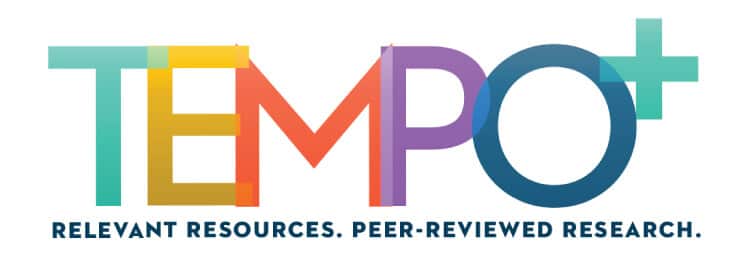“The data we gathered for your child does not demonstrate a need for gifted services at this time.” As a parent, this statement can result in a wide range of emotions. Knowing what steps to take next may alleviate concern and frustration. This article provides a few suggestions for conversations you can have with gifted administrators in your school district.
Types of Identification Data
The Texas State Plan for the Education of Gifted/Talented Students (Texas State Plan; Texas Education Agency [TEA], 2019) details accountability expectations for student assessment and notes that, “In grades 1-12, qualitative and quantitative data are collected through three (3) or more measures and used to determine whether a student needs gifted/talented services” (Student Assessment Standard 2.22, p. 6). As a result, districts’ quantitative evaluations often include (1) a nonverbal measure of cognitive ability and reasoning, (2) a measure of academic aptitude, and (3) a creativity assessment. Districts should also incorporate qualitative data in the form of parent and educator observations, surveys, or student portfolios. School districts vary in the evaluations they adopt, so it is best to verify the quantitative and qualitative assessments used for identification in your district.
Linguistic Diversity
Texas is rich in cultural diversity and the Texas State Plan for gifted education provides clear accountability to ensure equitable services. The plan states that referral forms, family meetings, and procedures for assessment are “communicated to families in a language and form that the families understand or a translator or interpreter is provided to the extent possible” (TEA, 2019, Student Assessment Standards 2.2, 2.3, 2.6, p. 4). Further, students should be assessed in languages they understand or with nonverbal assessments. One well-known nonverbal assessment measuring general ability in K-12 is the Naglieri Nonverbal Ability Test (NNAT), which is administered in a group setting.
Eligibility Review Committees
Once student evaluations are complete, a selection committee meets to review student assessment data. The State Plan explains:
Final determination of students’ need for gifted/talented services is made by a committee of at least three (3) local district or campus educators who have received training in the nature and needs of gifted/ talented students and who have met and reviewed the individual student data. (TEA, 2019, Student Assessment Standard 2.26, p. 6).
The selection committee should include at least three local educators who have received training in the nature and needs of gifted and talented students, which is included as one section of the 30-hour state-mandated professional learning for educators who provide gifted services. Often, the committee includes the campus principal, a counselor, a classroom educator, and the district gifted and talented or advanced academics program administrator. However, this can vary by school district and campus. A balanced examination of all data collected through the district’s assessment process helps ensures identification decisions are based on student needs.
Additional Data Points
In order to make the most appropriate placement, additional data beyond the information collected through the gifted and talented assessment process may also be considered. For example, additional data points could include:
- Group-administered PSAT, SAT, or ACT exams
- Individually administered Test of Early Mathematics Ability (TEMA-3),
- Individually administered Test of Early Reading Ability (TERA-4),
- Individually administered Wechsler Individual Achievement Test,
- Individually administered Bilingual Verbal Abilities Test (BVAT).
Parents should receive information about the assessments given to their child, including the contact information for school district personnel who oversee gifted and talented services. This contact person will be able to provide information about the evaluation process.
Questions You Can Ask
One of the gifted and talented administrator’s primary responsibilities is to explain the goal of each assessment and explain what your child’s scores reveal. This is a list of questions you could ask your district’s gifted and talented administrator if your child did not qualify for services:
- My child has a 504 plan with accommodations. Were these accommodations provided during testing?
- Could you explain the district or campus evaluation process for gifted services?
- What types of data were used to make this determination?
- How were the quantitative and qualitative assessments weighted?
- When will my child have the opportunity to go through the evaluation process again?
- What is the appeal process in this district?
- What enrichment options are available outside of gifted services?
- What are the options for grade-level acceleration?
Appeals
As a parent, you may request an appeal if you feel that the evaluation does not paint a complete picture of your child. An appeal must take place in a timely manner, but it will provide the opportunity for new data to be shared. If you request an appeal, it is important to bring further evidence indicating your child’s need for gifted services. Appeal documentation could include assessment data from a licensed psychologist, an independent passion project portfolio, after-school activities and accomplishments, and anecdotal observations that reinforce the thought processes you have observed. The goal is to assist the selection committee in understanding your child’s holistic needs.
Conclusion
Positive advocacy means championing your child. Everyone involved in the assessment and identification committee cares about your child and wants them to succeed in school. The quantitative and qualitative data gathered in this process are tools to make an informed decision.
The National Association for Gifted Children also provides information about classroom advocacy for parents.
References
Texas Education Agency. (2019). Texas state plan for the education of gifted/talented students. https://tea.texas.gov/Academics/Special_Student_Populations/Gifted_and_Talented_Education/Gifted_Talented_Education
About the Author
Bronwyn Vaughan is the coordinator of gifted education for Forney ISD. She has two decades of K-12 classroom experience working with gifted students. She is a member of the TAGT Parent Resource Committee and has enjoyed participating on the TAGT Reads Committee. Bronwyn is dedicated to producing engaged and enthusiastic learners; she is committed to partnering with families.






